aNewDomain — WiFi connects me to the Internet; it even allows me to watch TV. Bluetooth lets me – or used to let me – connect my phone to my ears from 20 feet away.
So why am I still tied down by so many wires?
Like many frequent travelers, I carry so many bundles of wires to connect my electronic devices that I feel like Gulliver overwhelmed by the infernal Lilliputians. Let me show you what I mean.
I mean, it’s 2015. Weren’t we supposed to be living in a wireless future by now?
Perhaps the biggest disconnect between hype and reality is the AC power adapter for my MacBook Pro “laptop.”At over eight pounds, it’s a lie to even call it that. But never mind. The late Apple cofounder Steve Jobs is rightly revered for his love of industrial design.
But that Macpro AC power adapter, which pundits often point to as an example of his supremely evolved attention to detail, is definitely not Apple at its best. First and foremost, you have to wrap that sucker very carefully, or it will tend to bend at the exit point from the box. Look at the photo I shot below. You can see the loop sticking out to the right. And this is a replacement, for which I spent $79. So I’m really careful with it.
But really, this thing weighs 1.5 pounds — it weighs nearly as much as a 12-inch MacBook air! But there’s no choice. I must lug it around everywhere. This is the first thing to go in the carry-on:
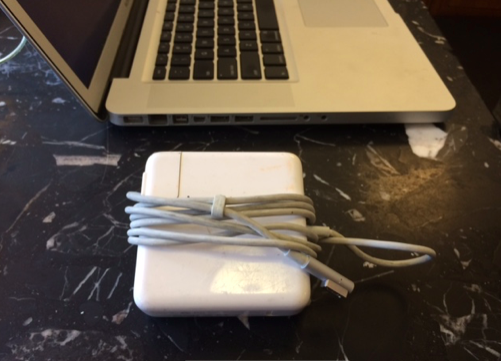
And I’ll need an extension cord. Plugs are rarely close enough to the desk or the bed where you want to use your computer. This is always when you need an extension cord. Another must. This is another thing to pack:
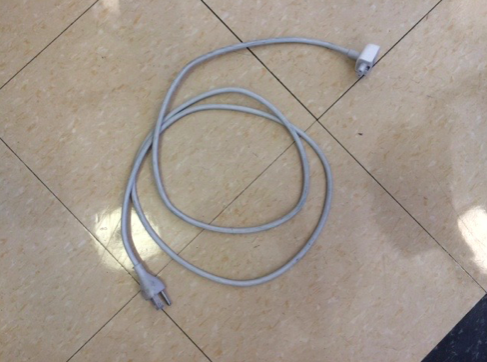
And I need the standalone mouse. This, for me, isn’t optional. Track pads wear out and they’re clumsy. If you must use Photoshop on the road, as I do, this guy is indispensable. And its connector, of course:
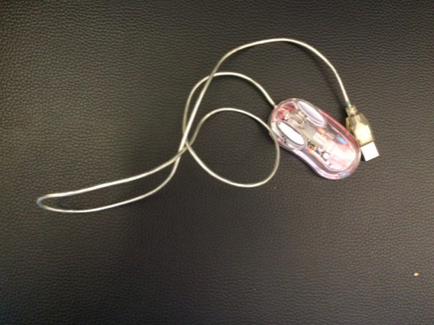
And headphones. That’s a must. Gotta have headphones to listen to music or watch a video on the plane.
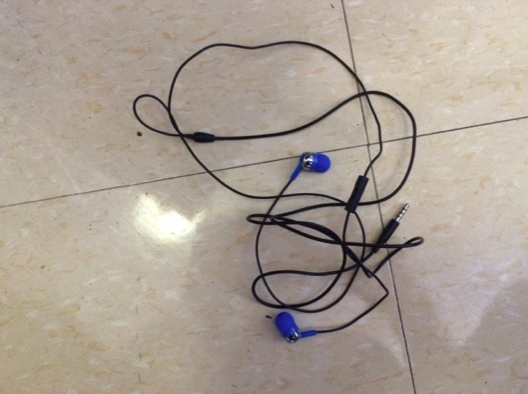
What about Bluetooth? Nah. Tried that. I used to have one of those dorky Bluetooth units. It was too fragile. Couldn’t take the road. I had to replae this thing twice after it fell apart. Also, the dorky Bluetooth unit had to have its own docking port, which also needs to be charged by itself. Another item to pack. No, thank you.
I have tried the Jaybird Bluetooth earphones, but the most irritating thing in the world has got to be the wire that connects the two earpieces. It pulls on the back of your head, and it’s either long enough to pull your hair or short enough to pull out of your ears. Bluetooth headphones are another imperfect solution.
And so $20 headphones are still the way to go. If these break, I won’t cry too hard.
And then there’s the WiFi equipment. This part is sad. Like other tech companies, Apple seems to assume that everyone lives in San Francisco or Portland, where free wireless Internet access is easy to come by. But in the real world, Wi-Fi can be exorbitant – up to $40 on an airplane or $20 a day at a hotel. Or, worse, it is simply nonexistent. This is why most seasoned travelers rely on a Mi-Fi device that pulls 4G or LTE service from the sky. (I use a Verizon model).
It’s true that upload and download speeds are as slow as molasses with this unit, but it’s a miracle to be able to get online in places where no one else can. Alas, the Mifi requires another wire for a device that, yes, must be charged. So this goes into the bag:
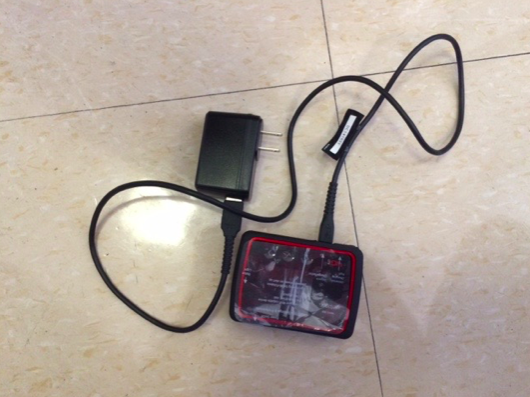
As a cartoonist, I used to hunt down FedEx Office outposts in the cities I visited in search of graphic design computer stations where I could scan my cartoons and work on them in Photoshop. In the age of the portable digital scanner, thank God, instead you can spend just over $100 for a device that will break even after avoiding three visits to FedEx.
On this, I have good news and bad news. The good news: There’s no need to charge them! But the bad news is: They are not wireless. As you can see below, that adds up to another wire to pack.
Note: the outlet for the portable scanner that I use is similar to an almost the same size as the one that I use for the MiFi – but not quite. So I don’t get to cheat by leaving one wire at home.
And there’s the phone charger. Because I’m lucky if my iPhone can make it one entire day without running out of power, I’m always carrying its charger: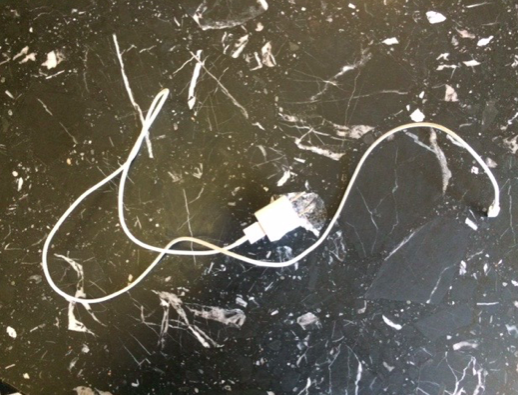
Last, but not least, and probably not even last – who knows what additional wires I’m going to need in the future? – there’s the extra battery pack I carry. I’ve lost power in bad situations, like during power outages and at airports while dealing with canceled flights, and I’ve lost power often enough to know that I might need to charge my iPhone without access to an outlet. So I always have to carry and keep charged, my Mophie battery pack.
Yes, you heard that right. The backup battery pack has to be charged, too. It comes with its own … you know:
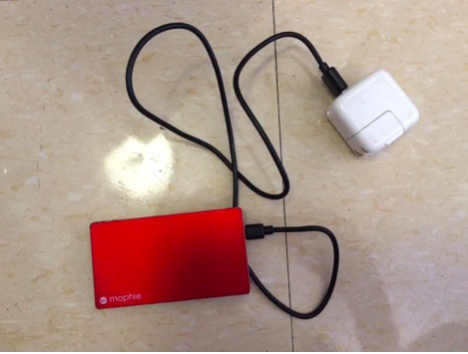
Induction charging pads are interesting for home use, but they do nothing for people like me who spend a lot of time on the road. Besides, Apple still isn’t playing — it’s only for Android. Even the charging station for the Apple Watch plugs into the wall.
As a former engineering school dropout, I humbly request my former colleagues now working at various tech companies to please turn their attention to the massive lump of constantly breaking, repeatedly tangling wires clogging up my luggage.
 Never mind flying cars.
Never mind flying cars.
And for sure I can live without driverless cars like the Google Car, for sure.
But I would give up an organ to get rid of half the wires I carry.
For aNewDomain, I’m Ted Rall.
All wired photos: Ted Rall for aNewDomain.
Photo of Google Car: Google, All Rights Reserved.
Photo of Flying Car prototype: Aeromobile.com, All Rights Reserved.
Kidney shot: By Piotr Micha? Jaworski; PioM EN DE PL (Own work) [GFDL or CC-BY-SA-3.0], via Wikimedia Commons












